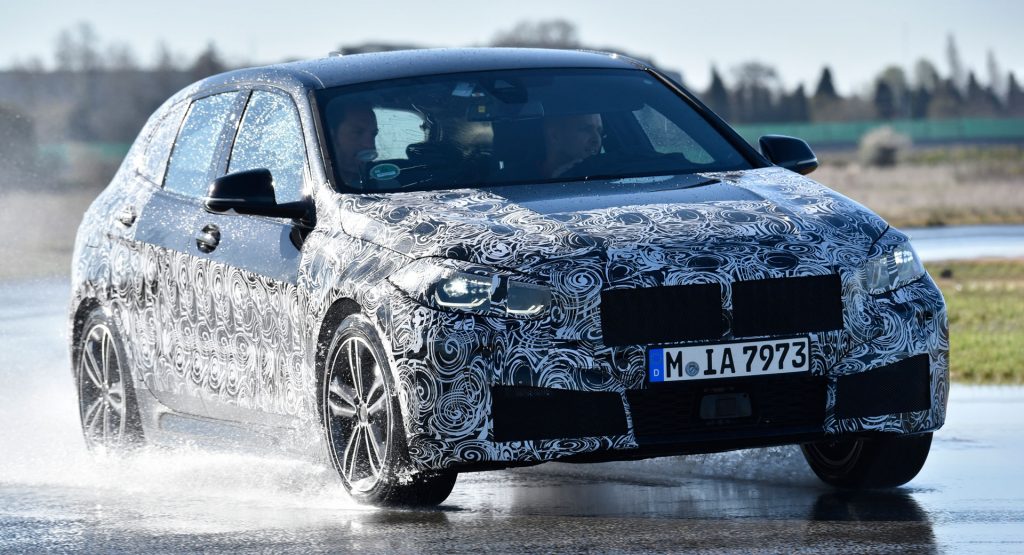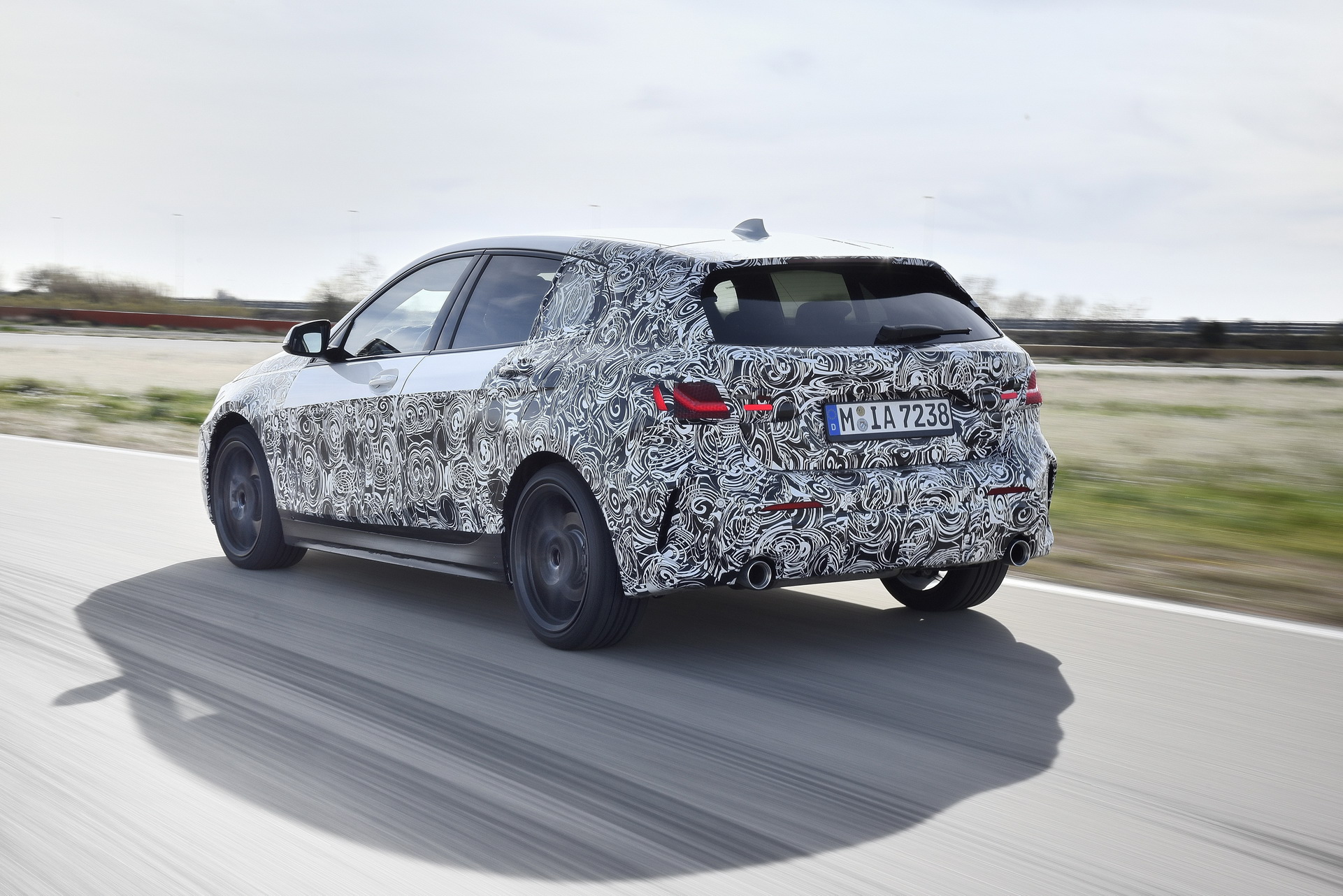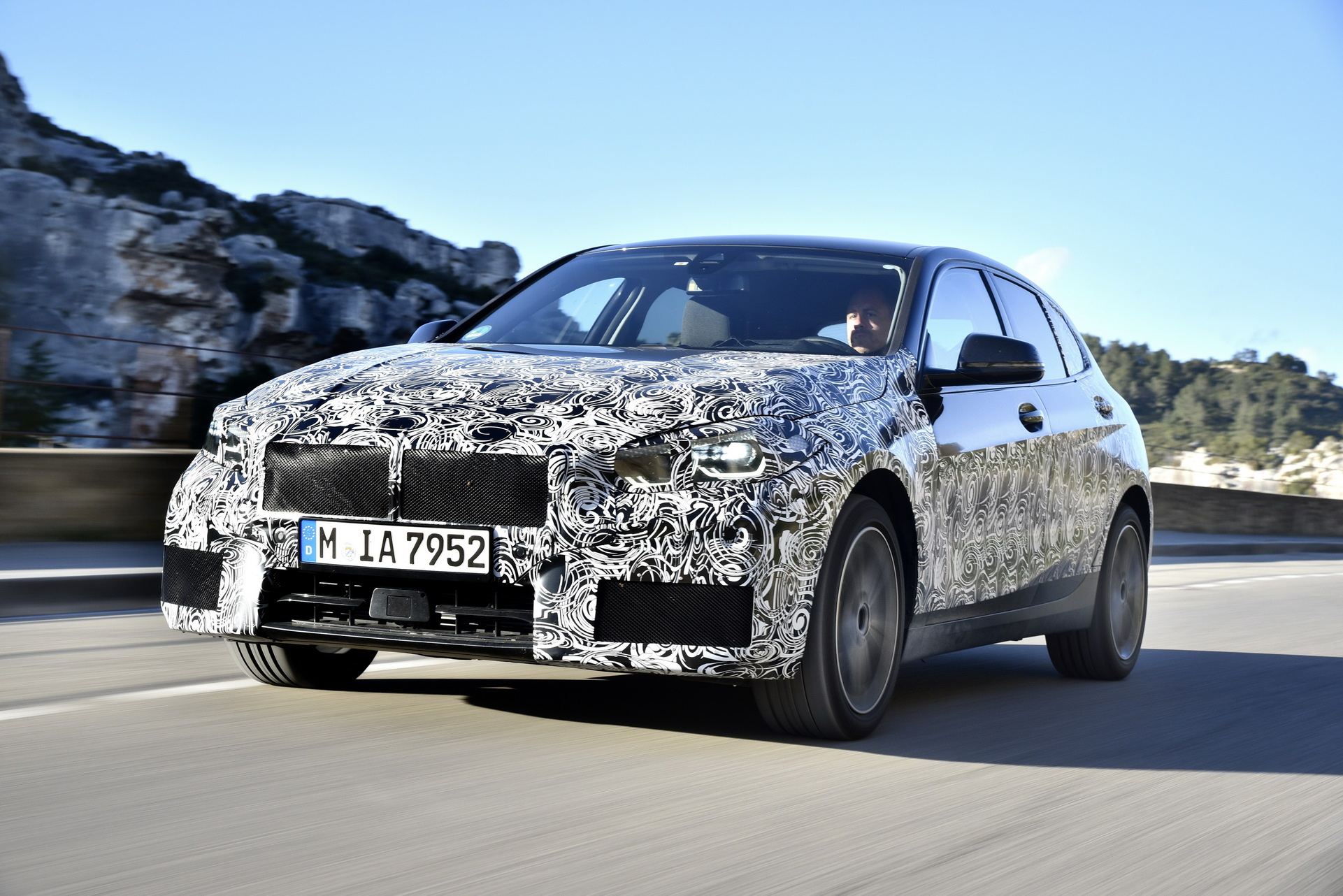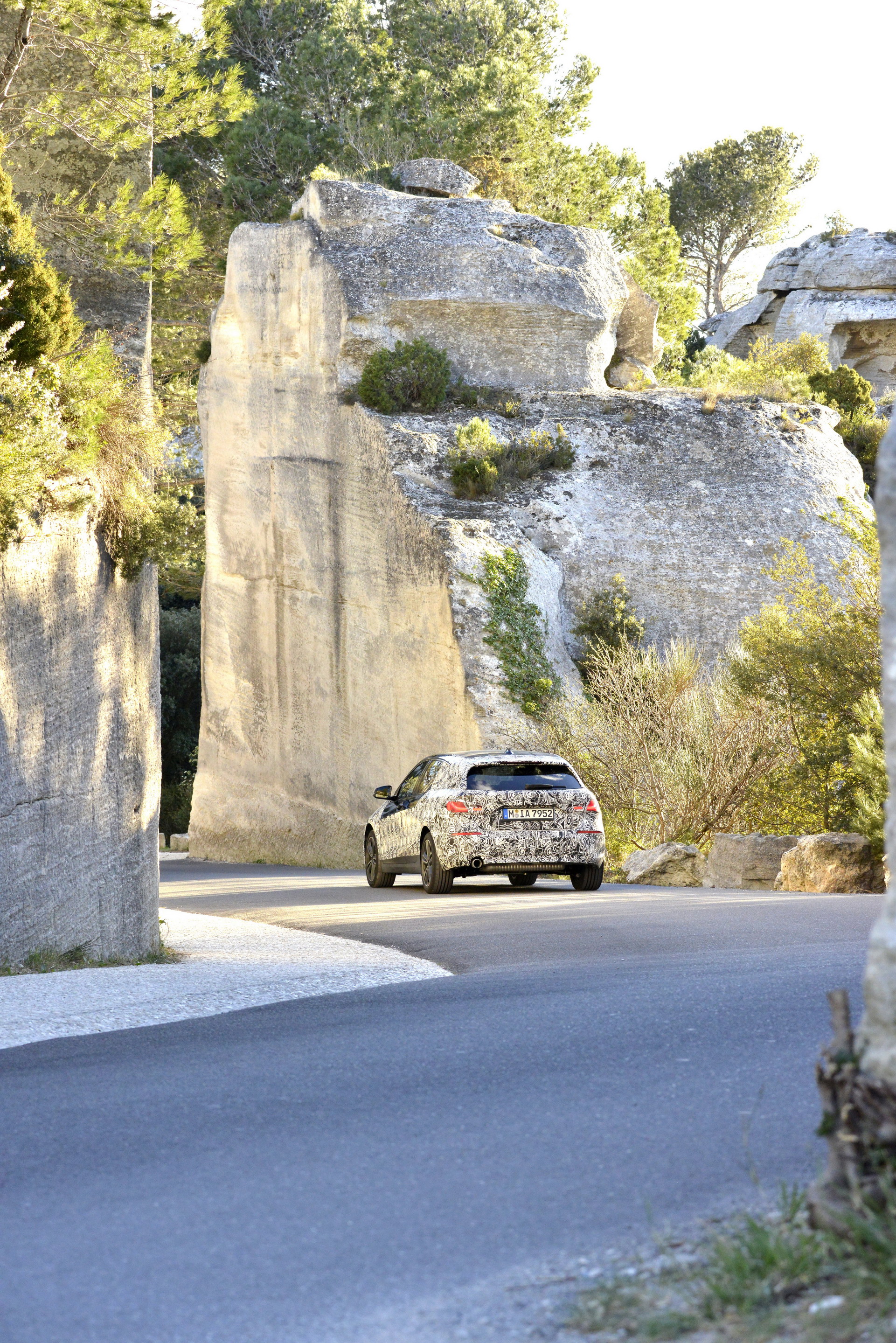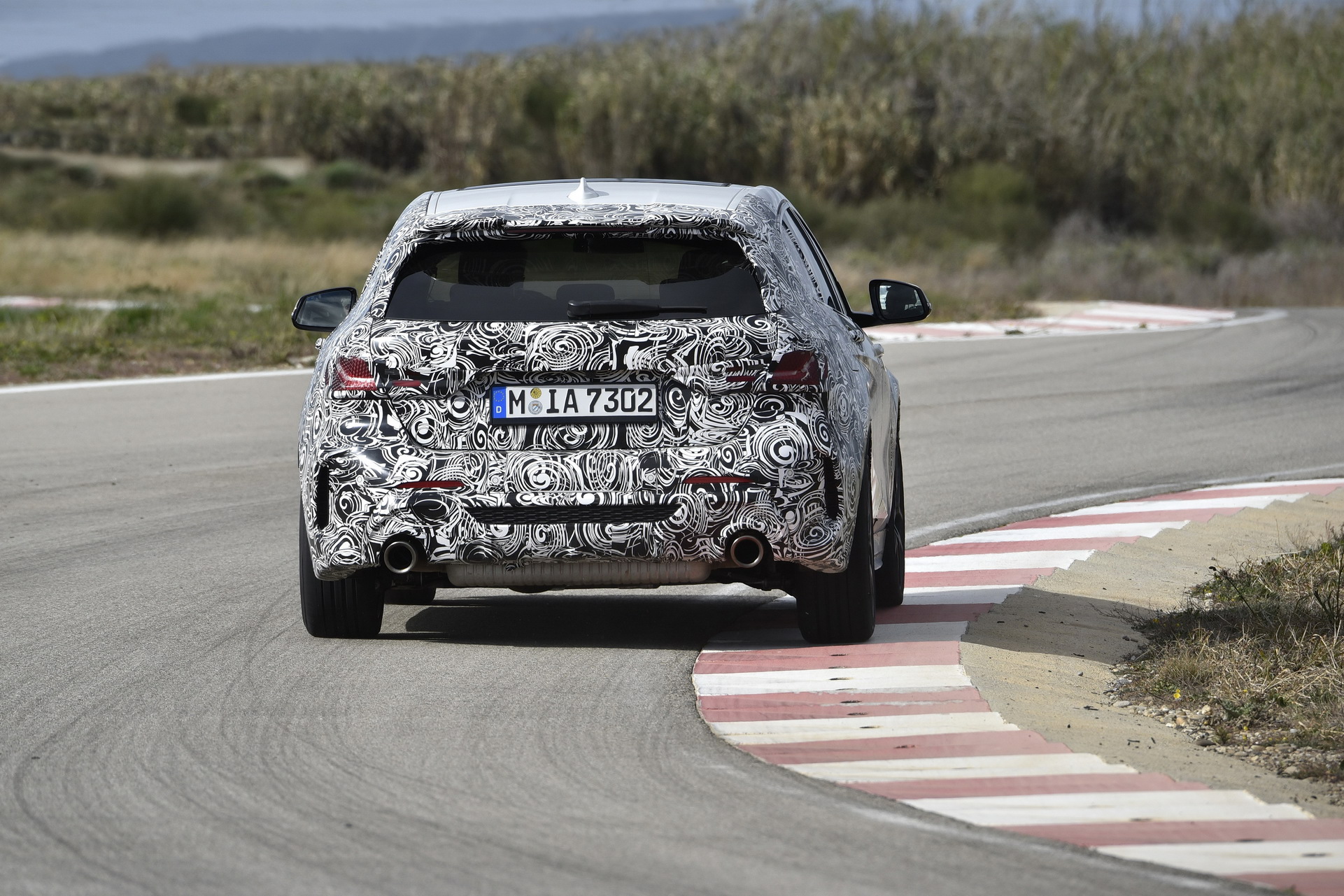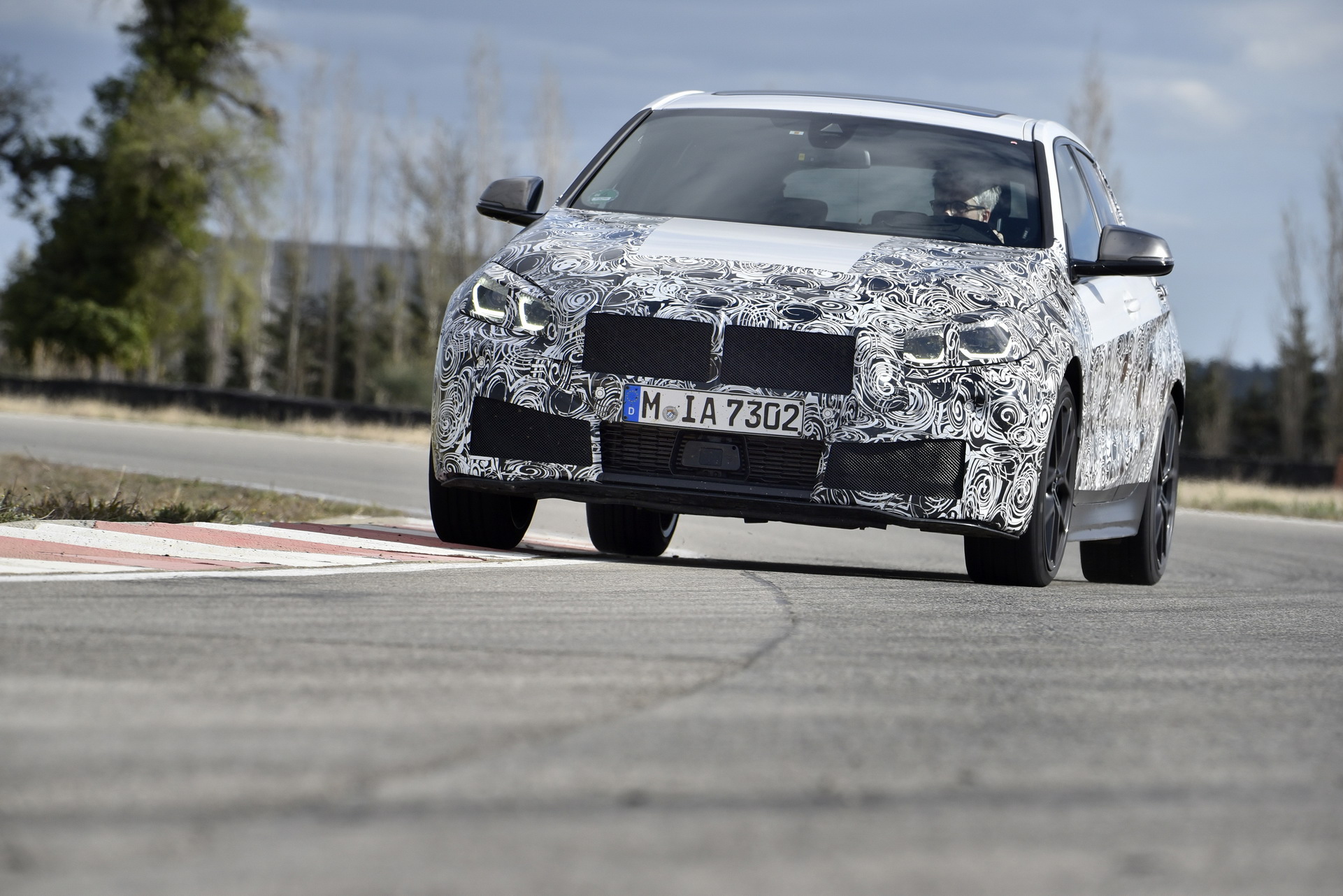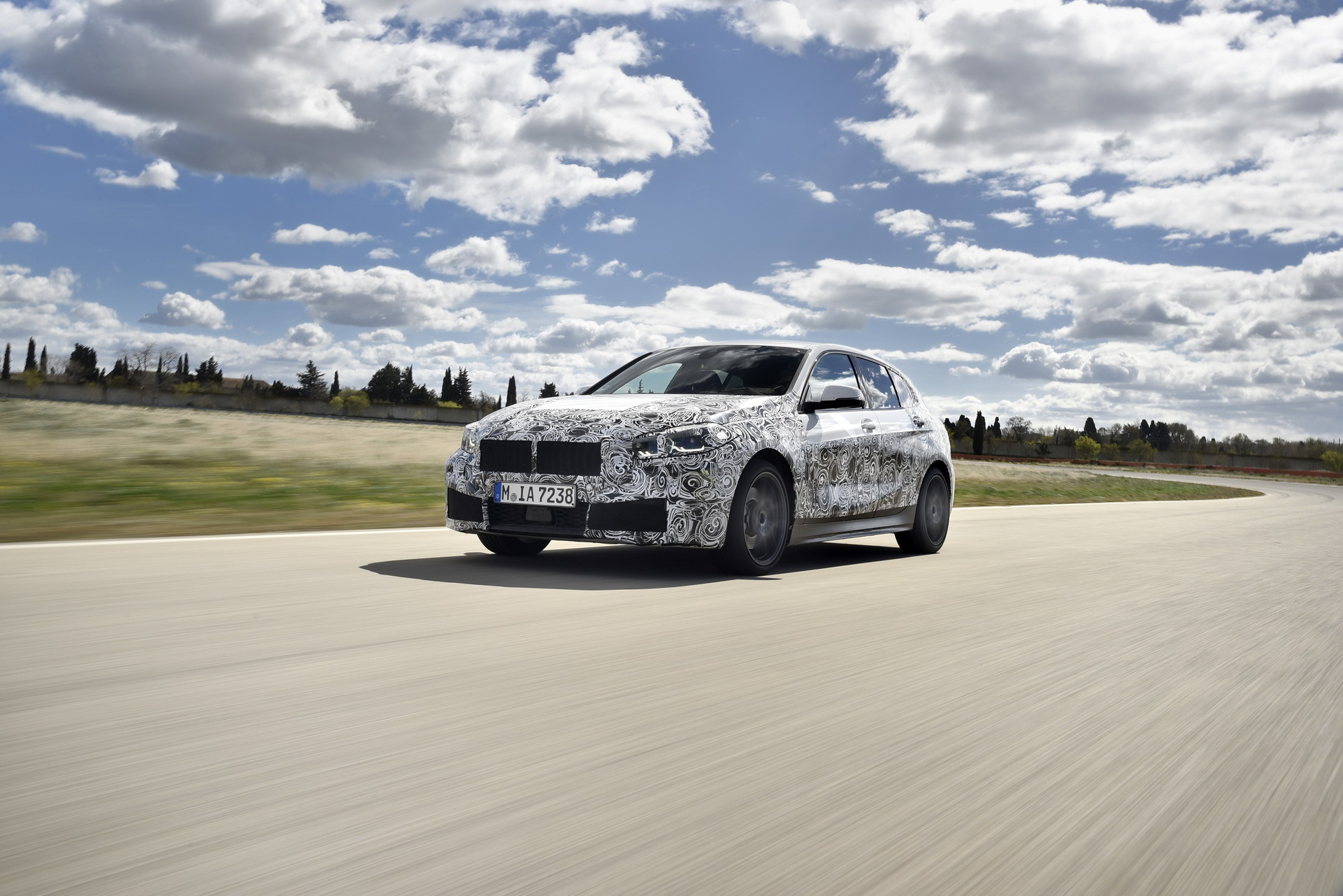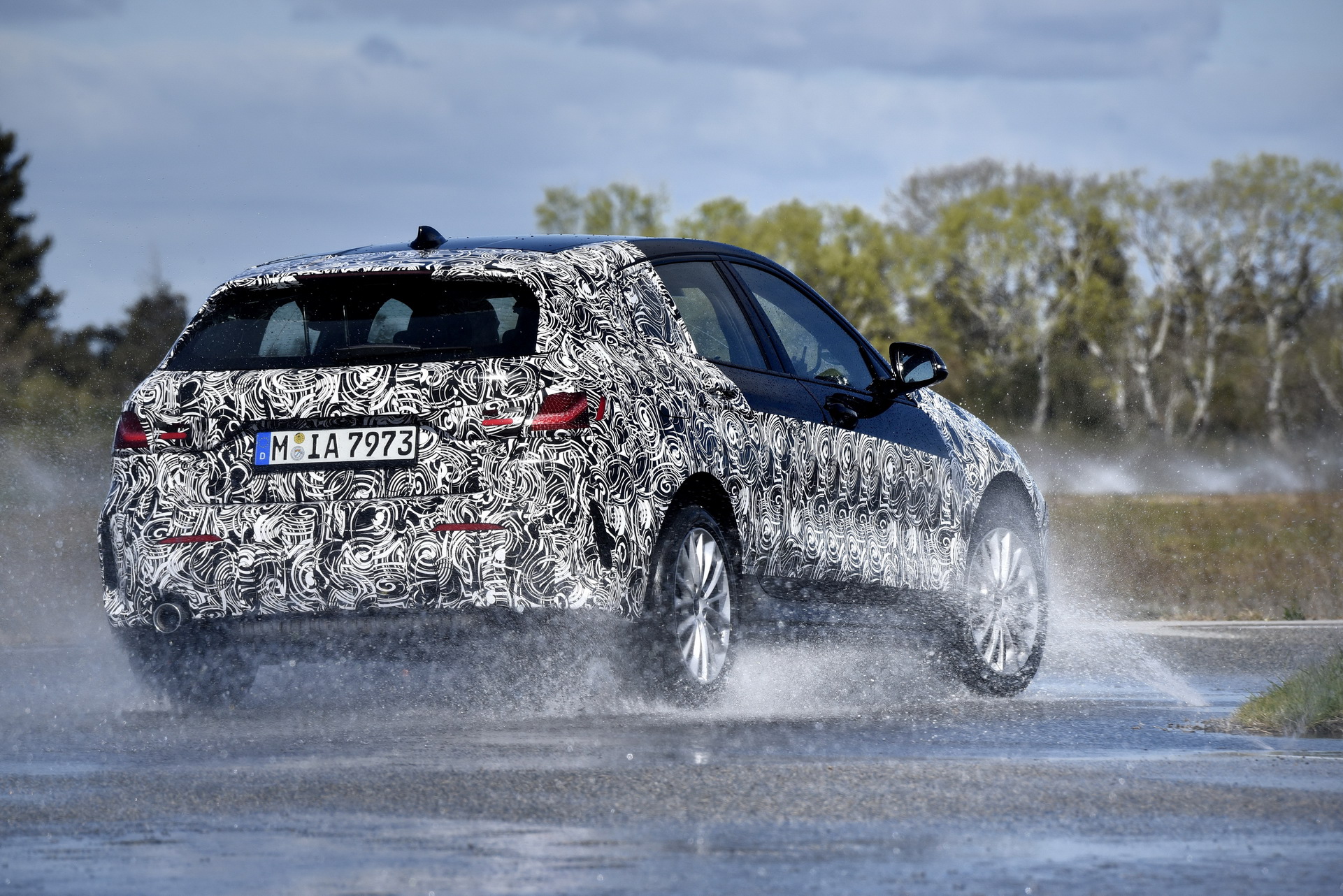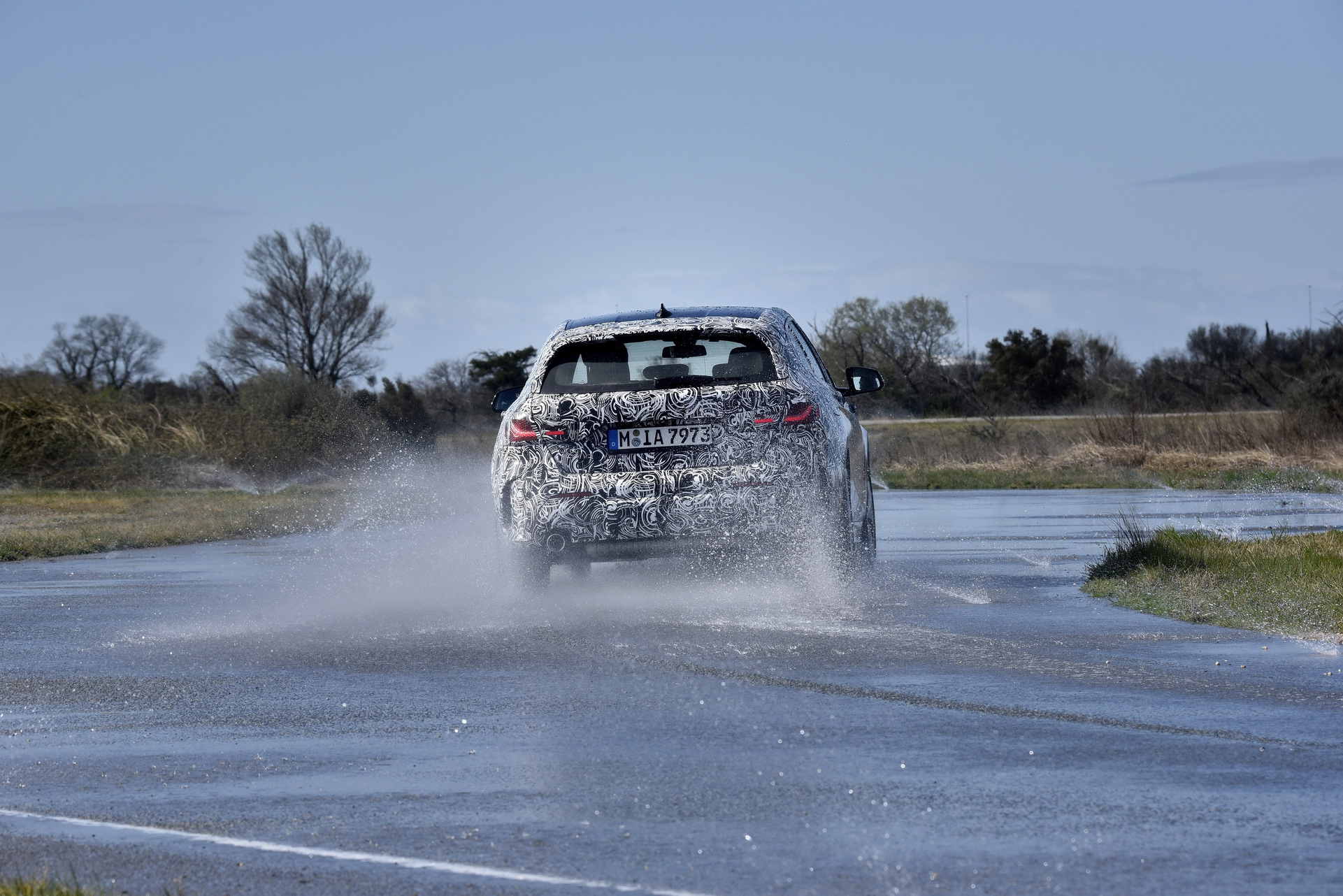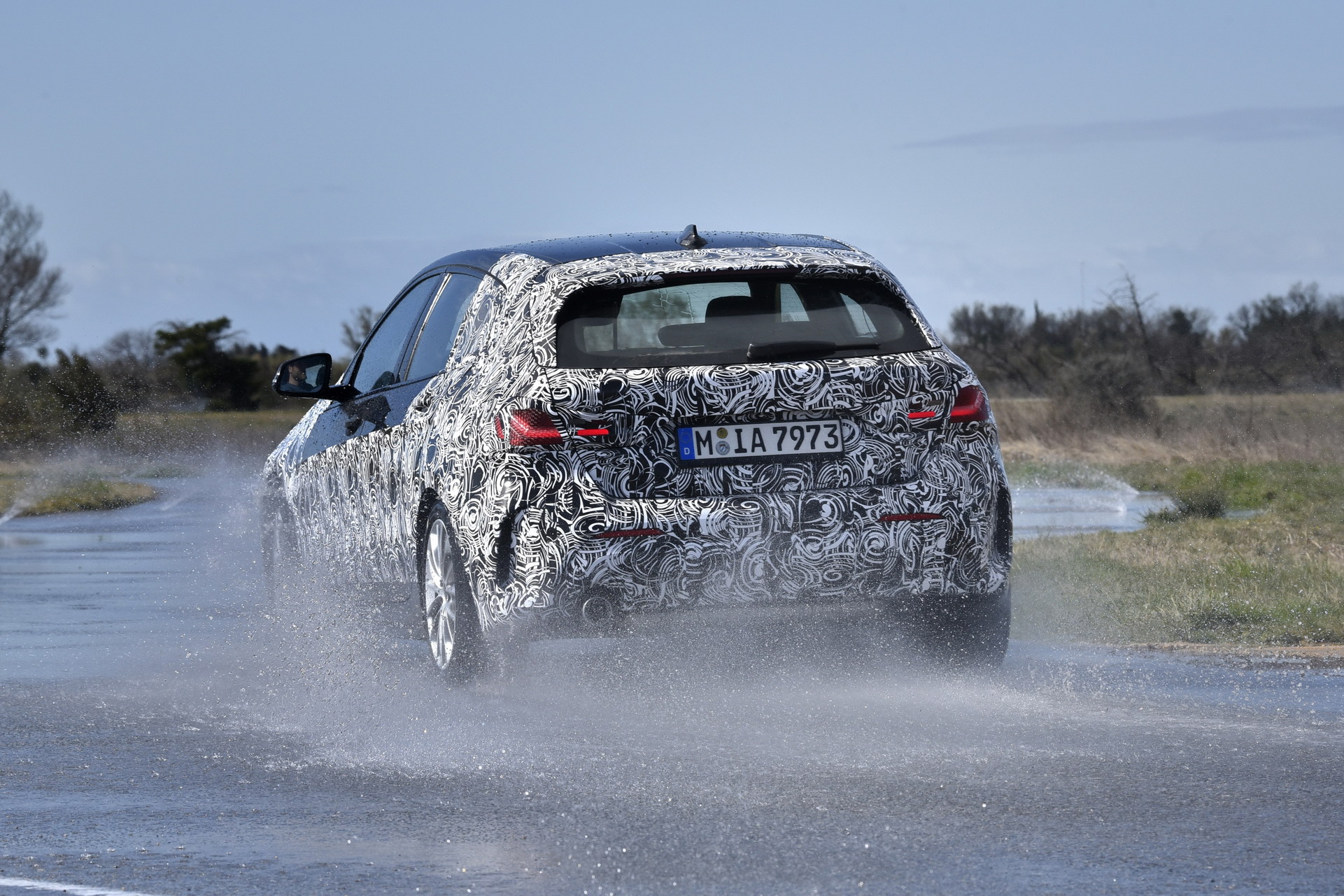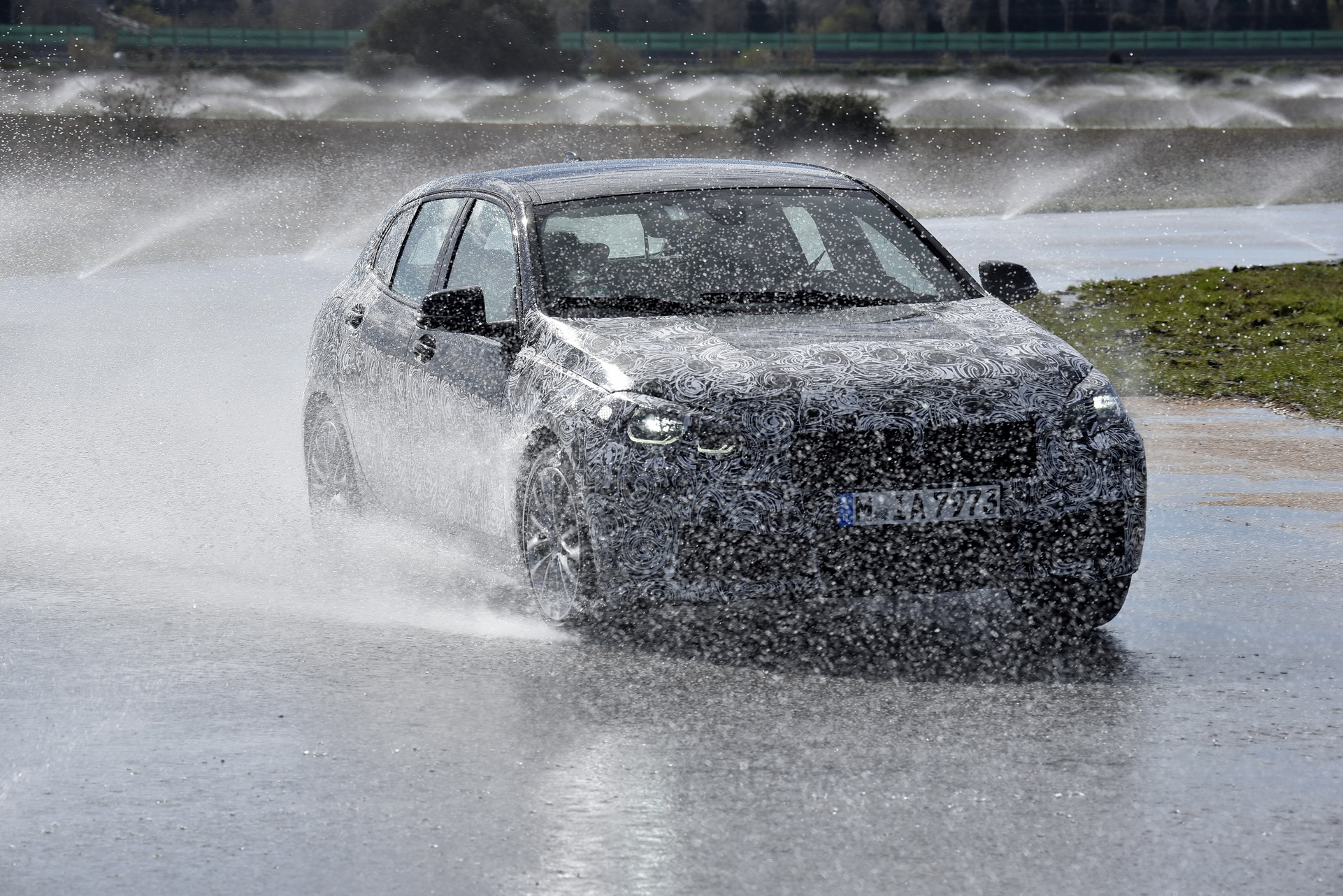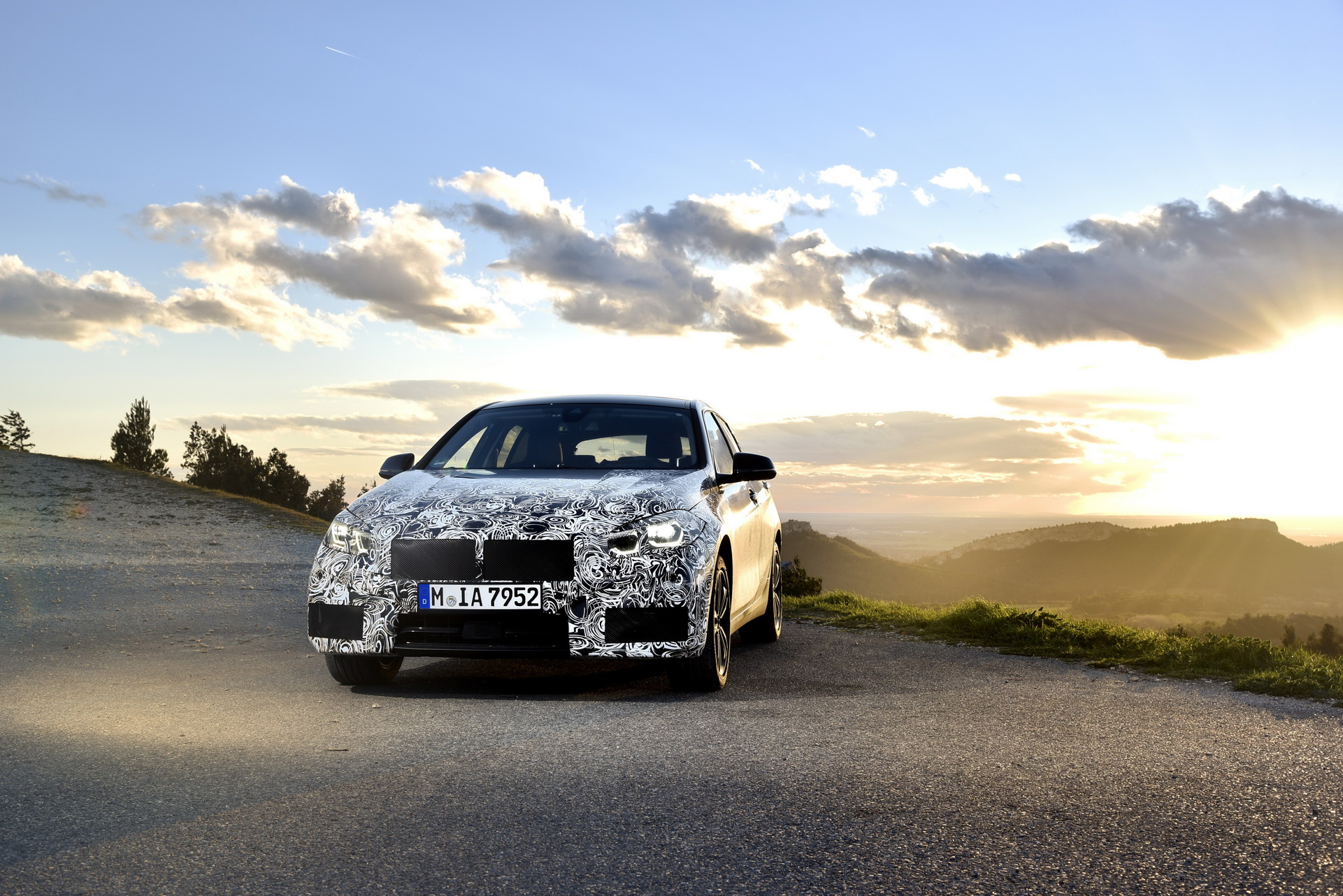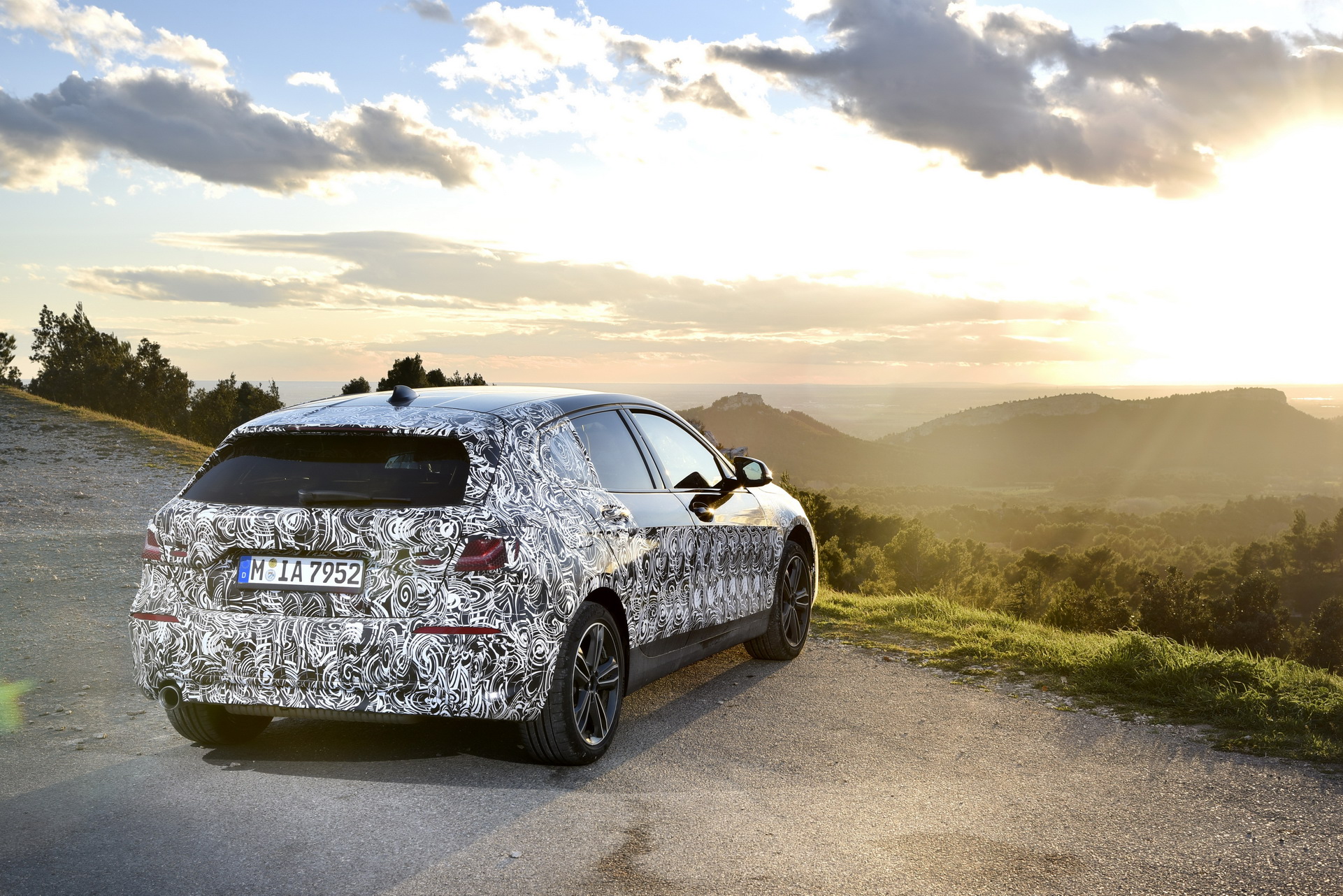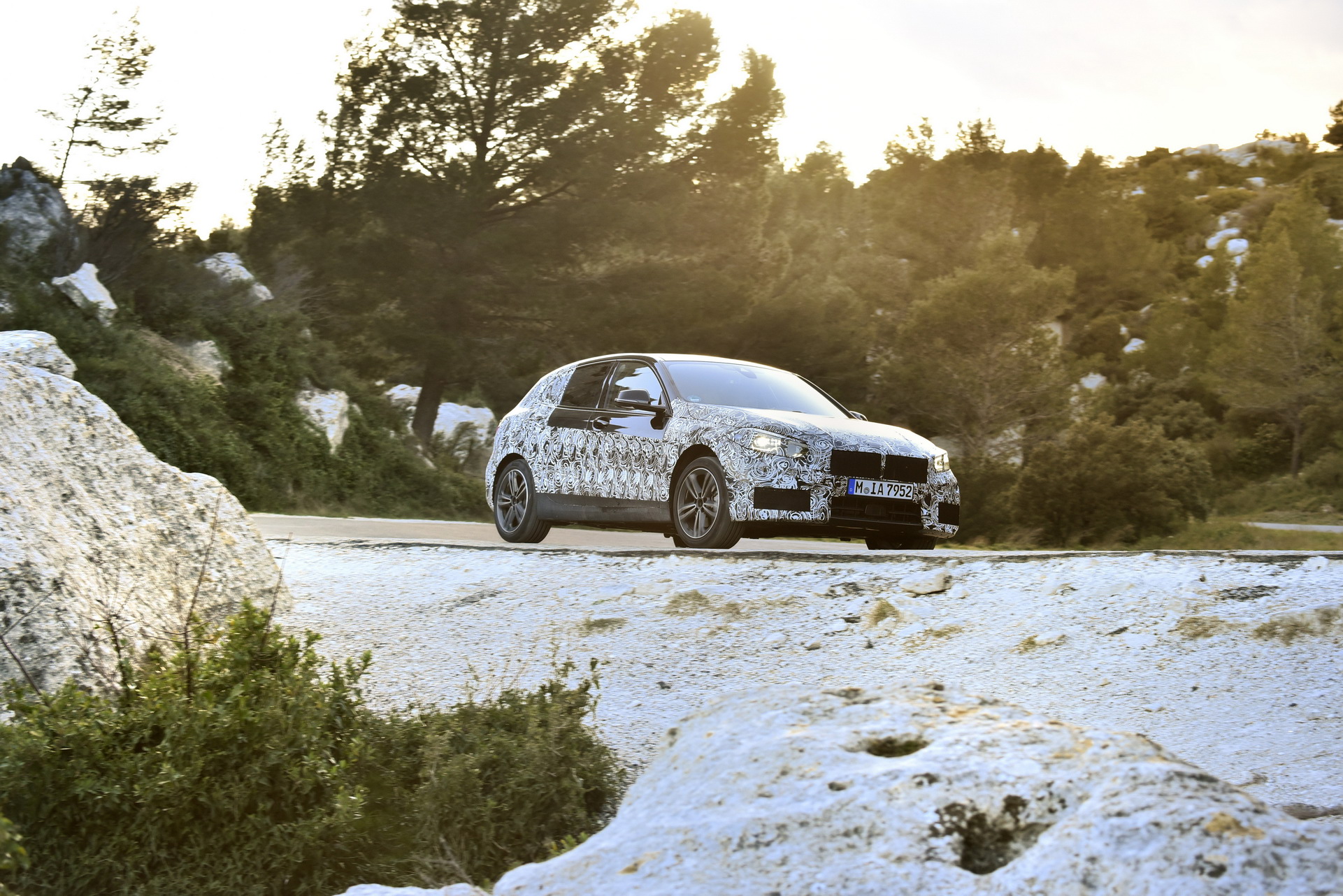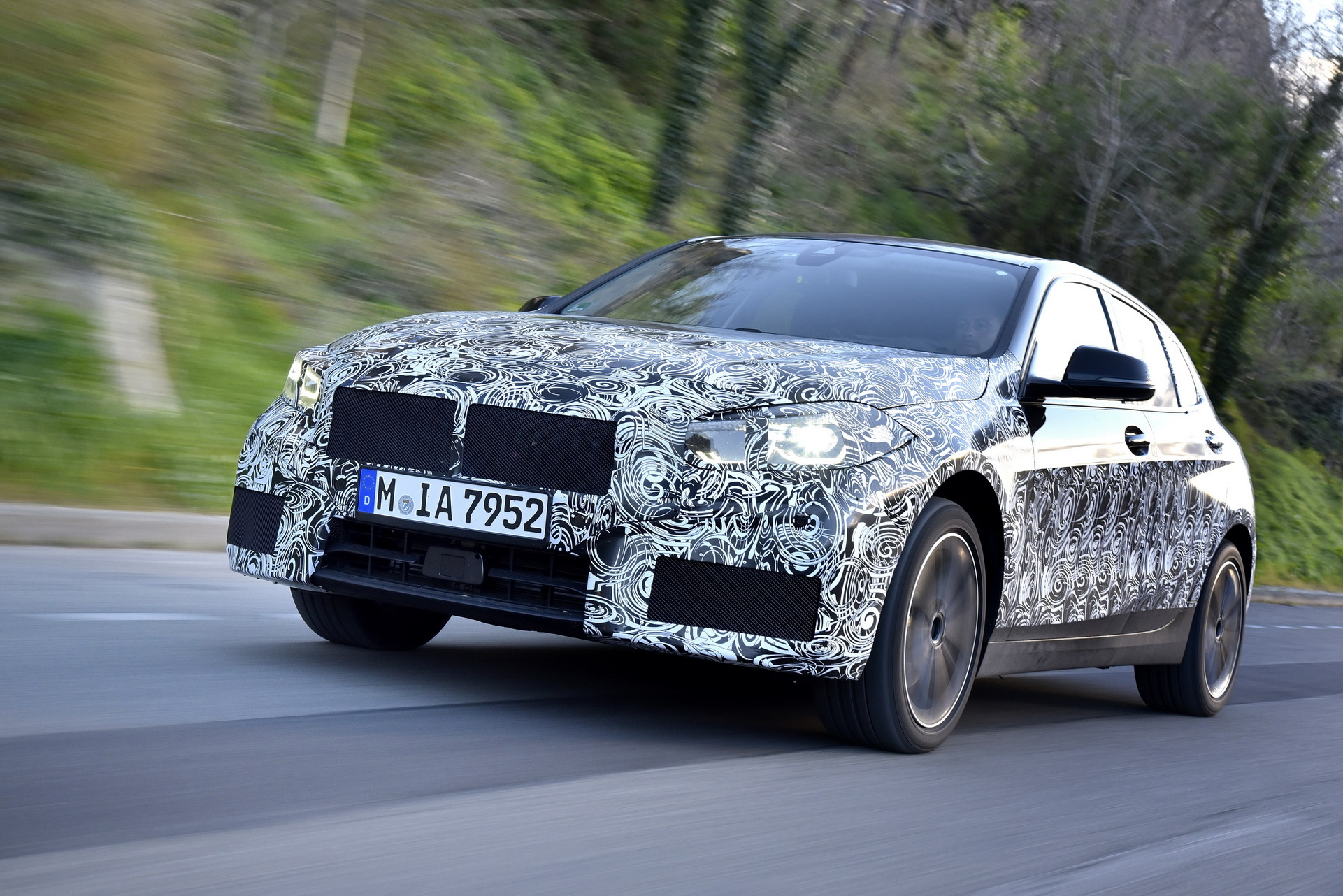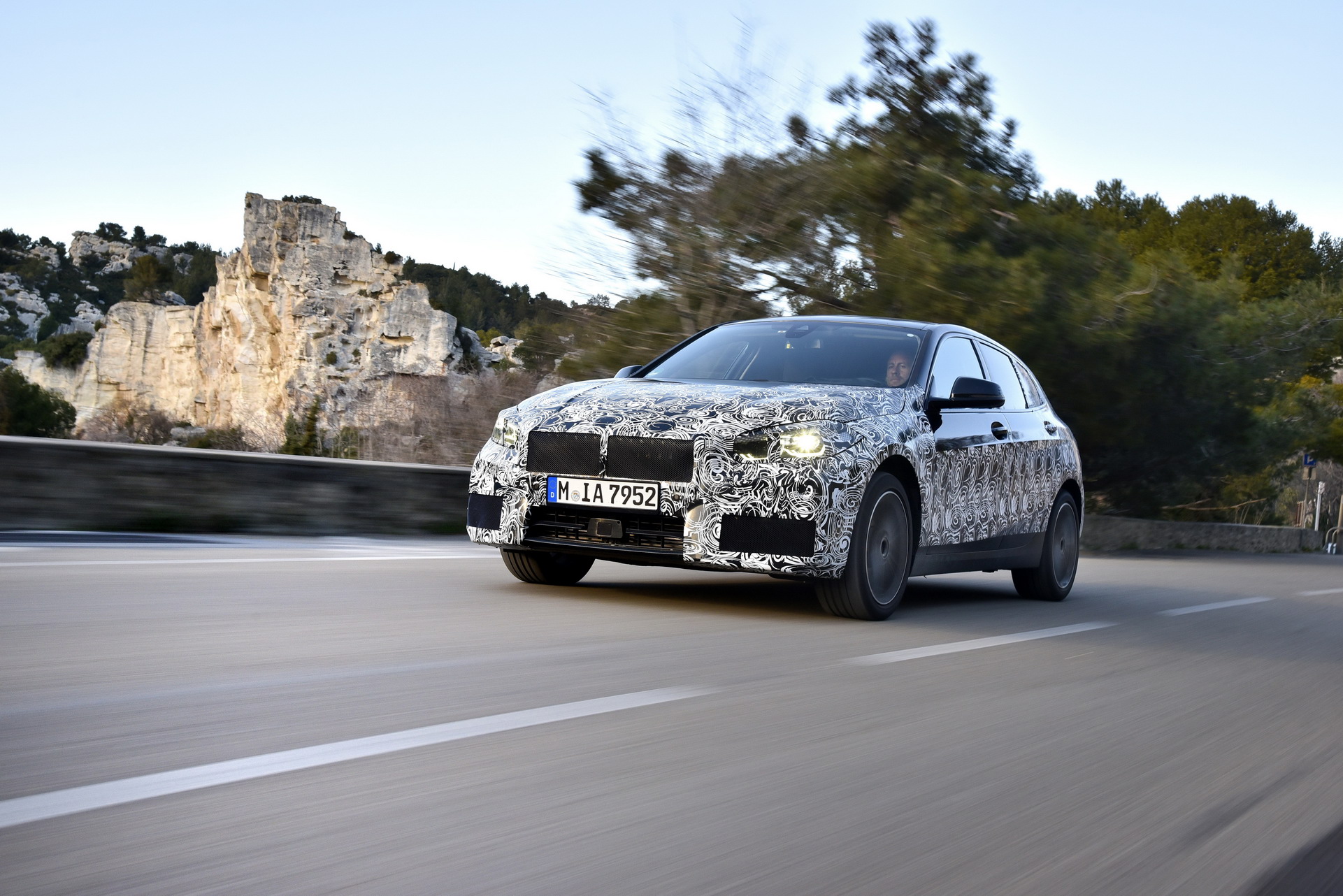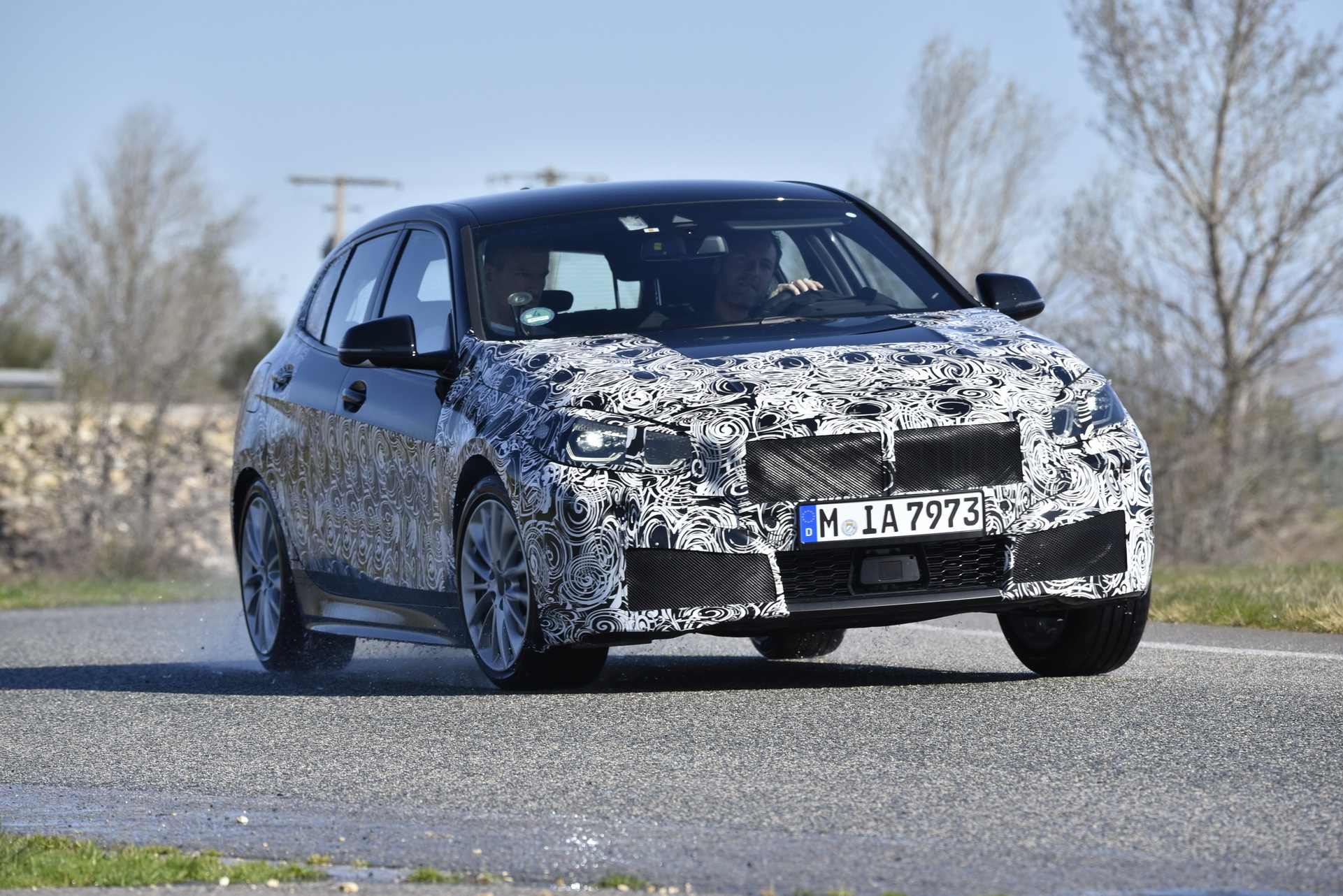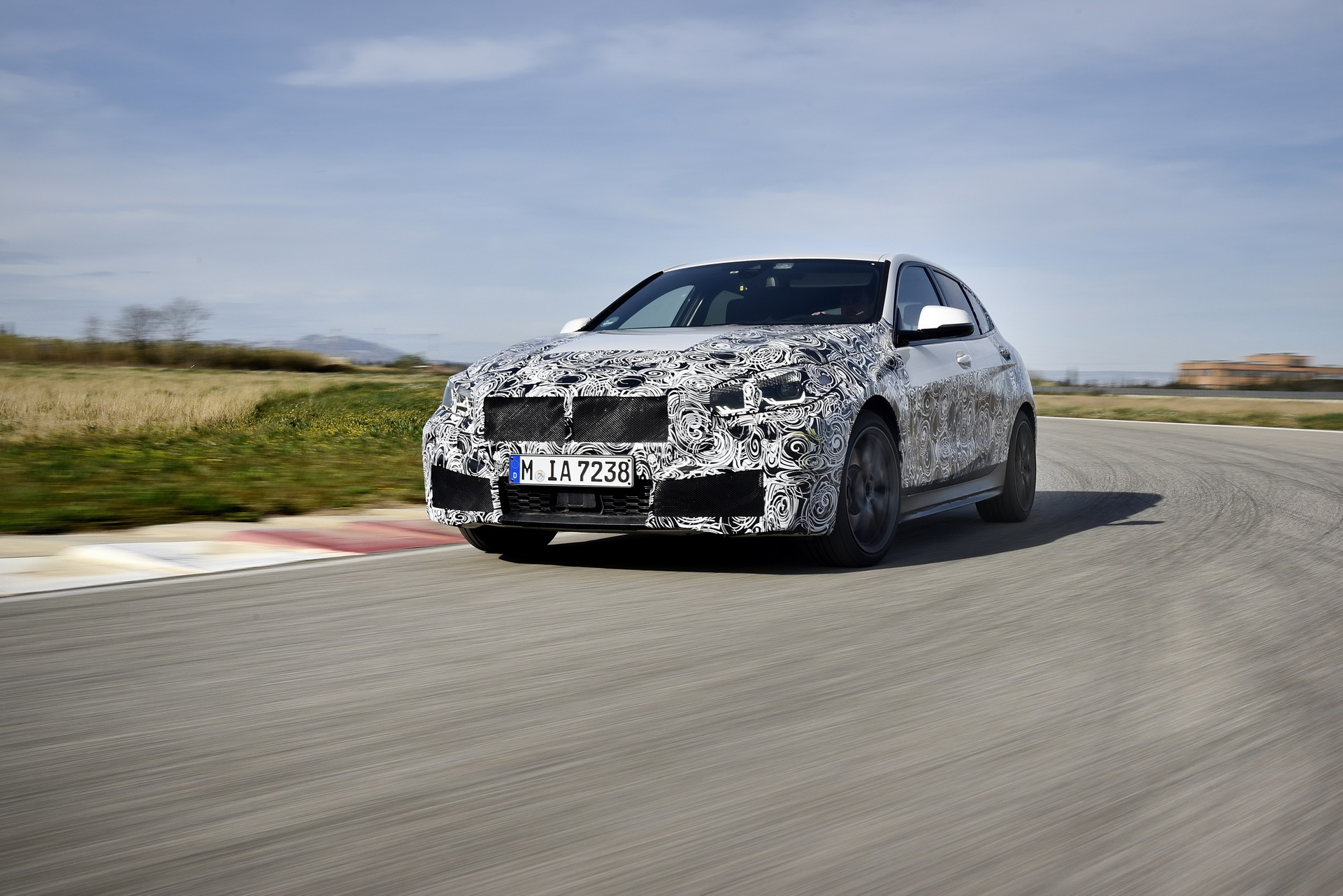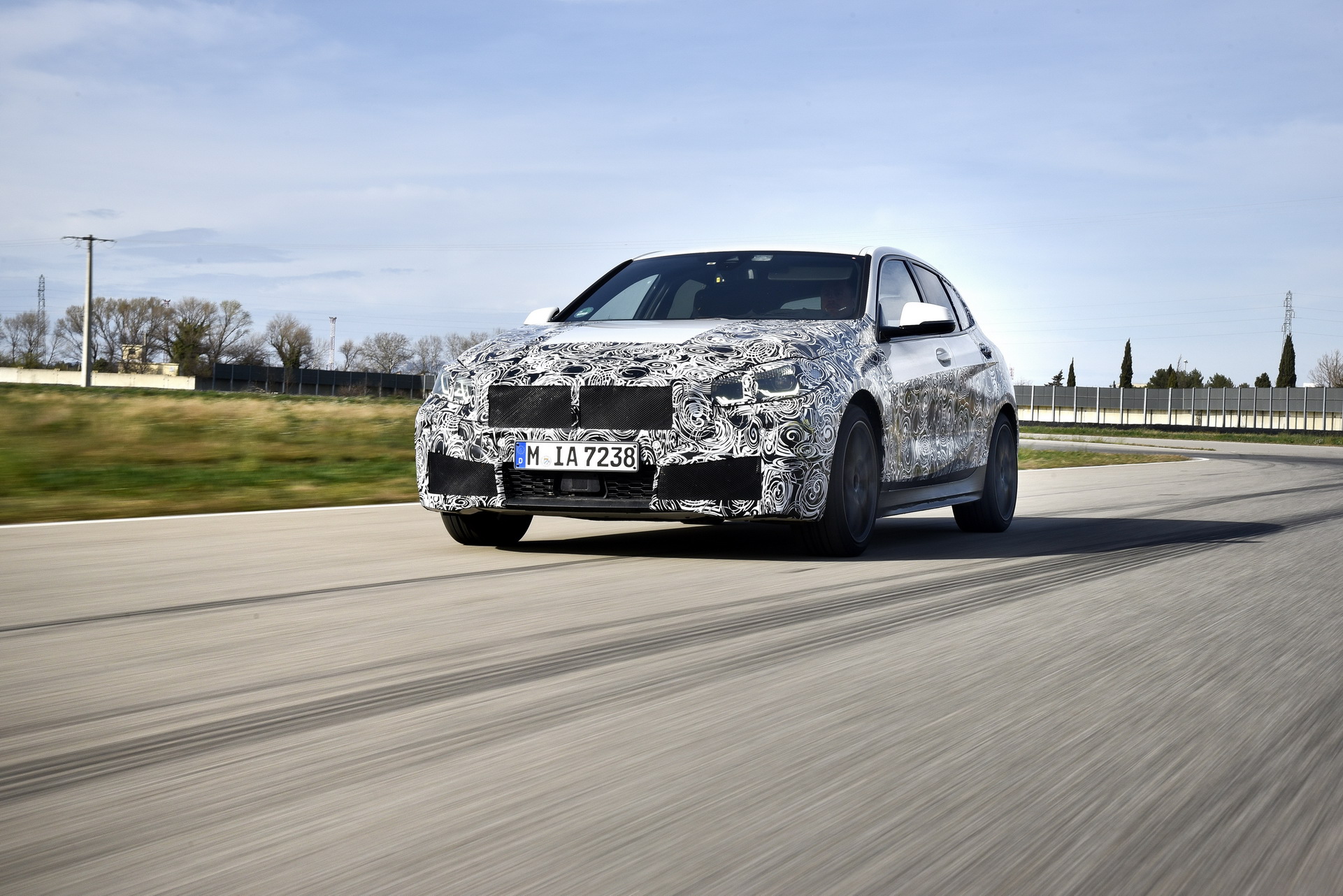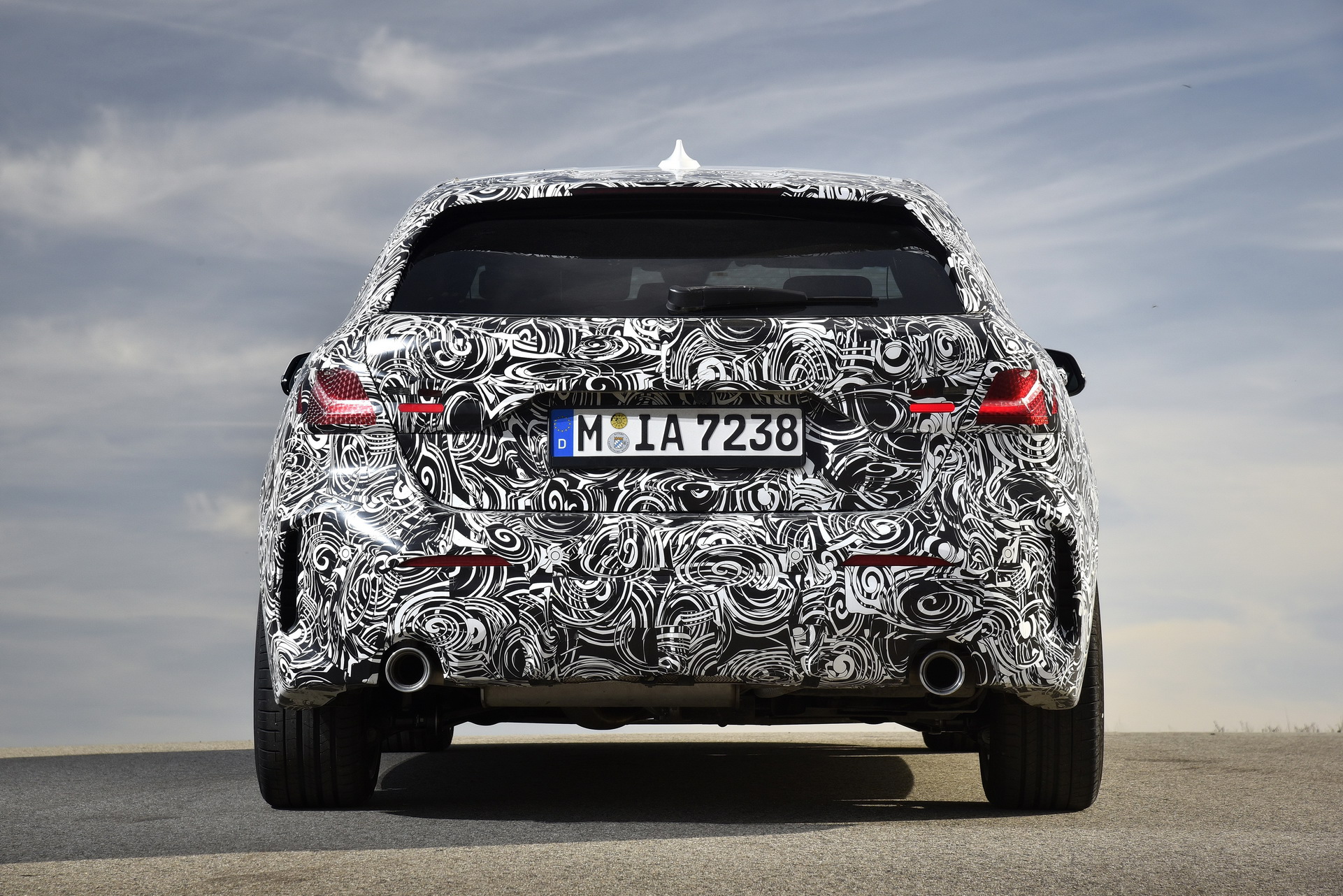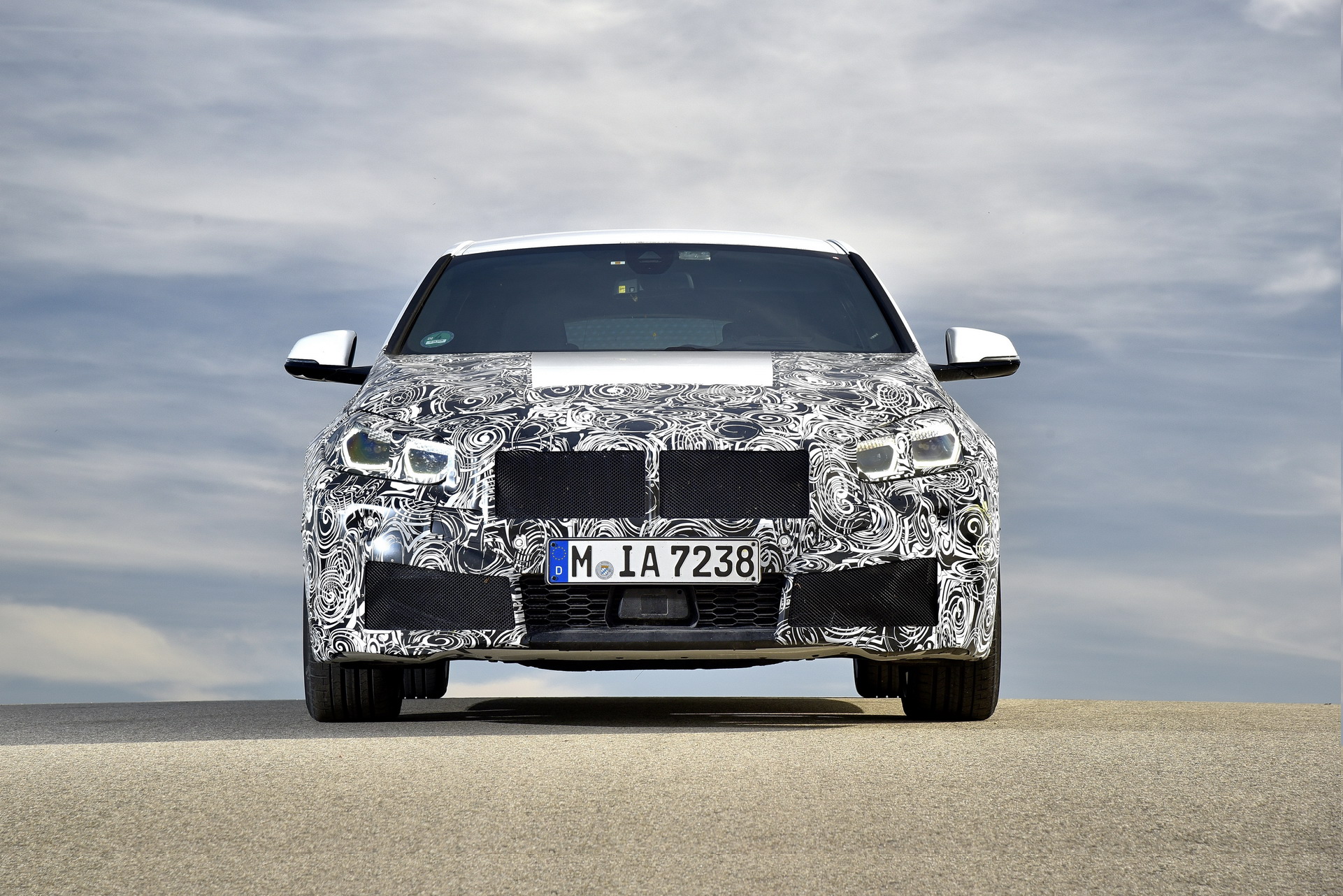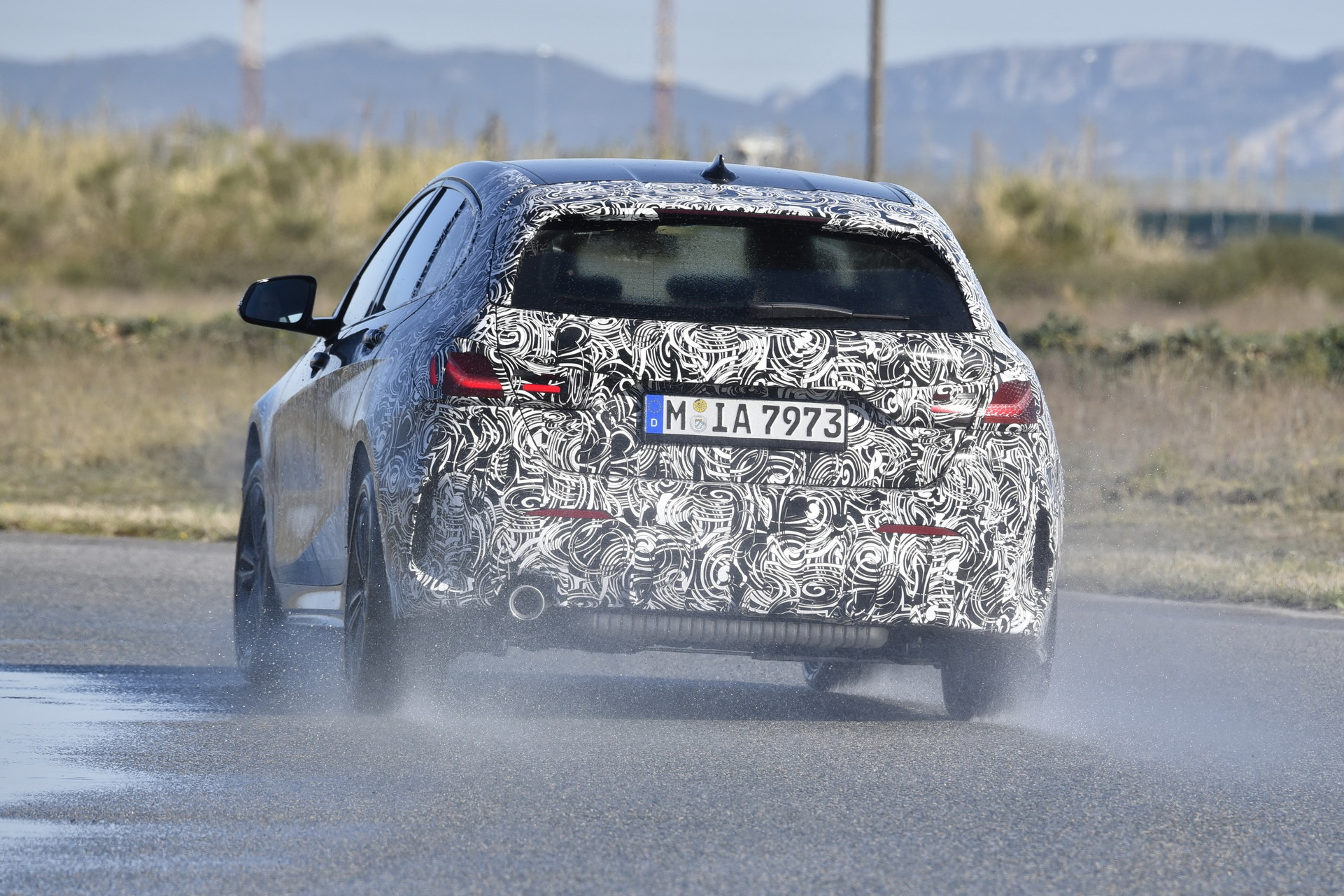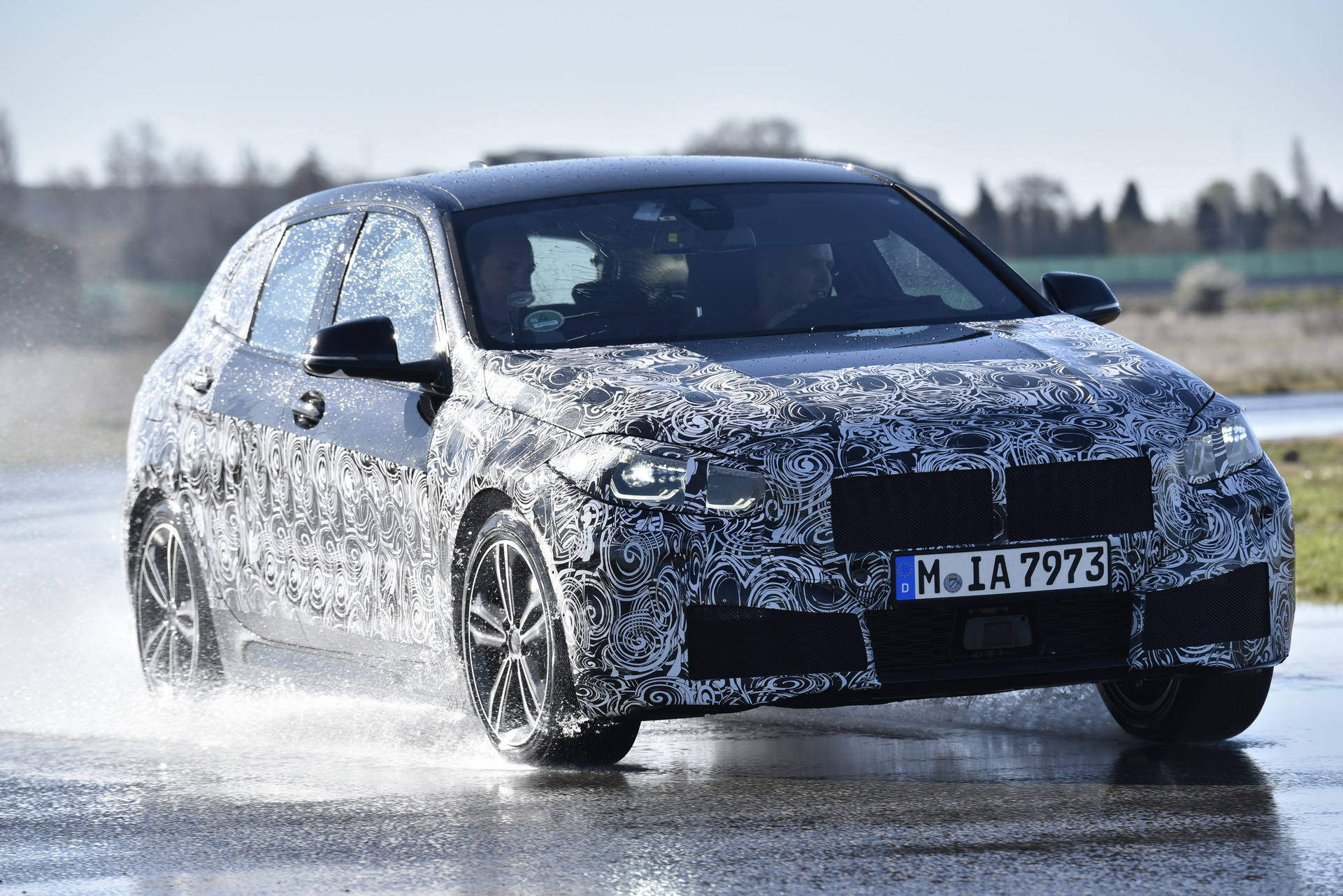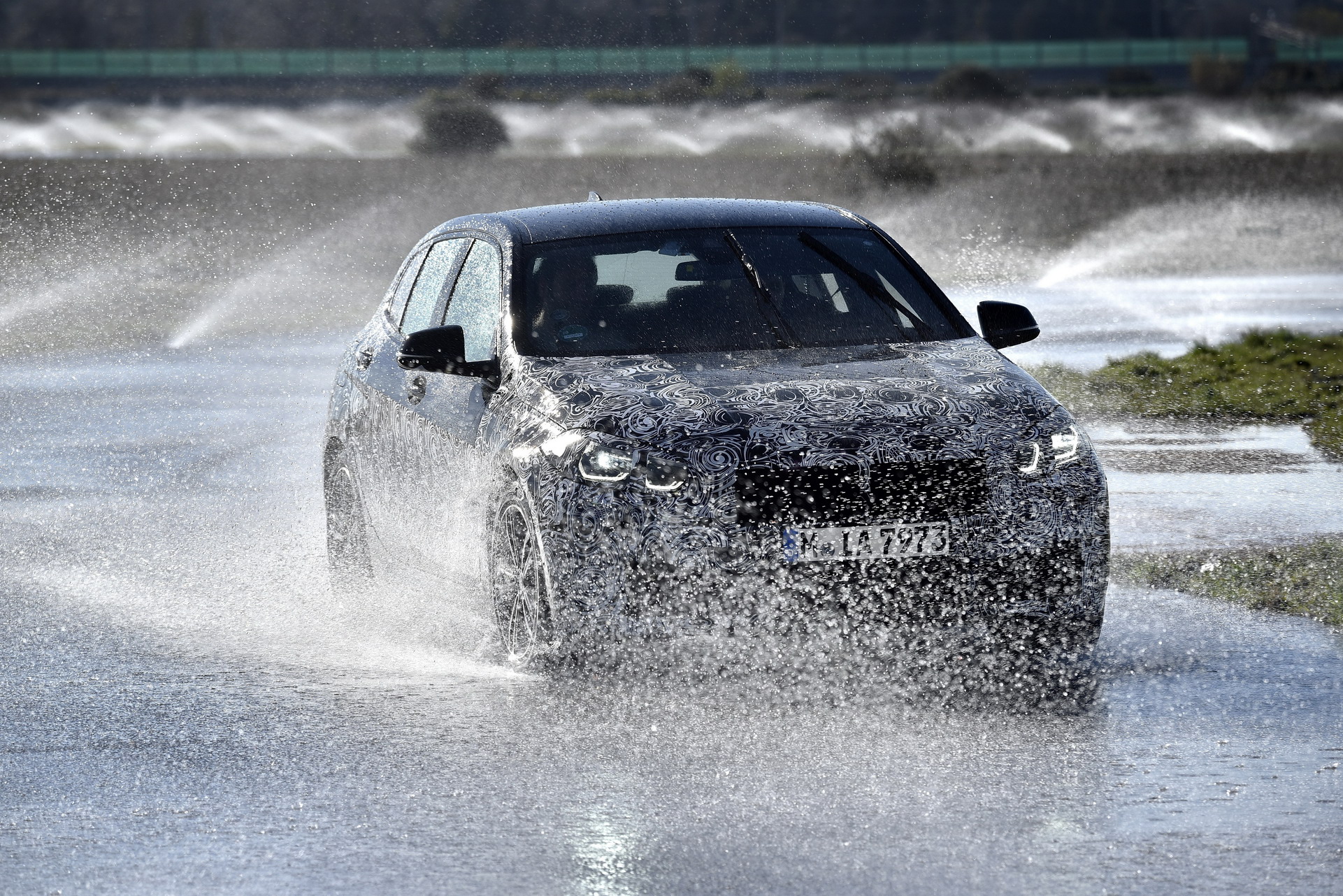BMW is putting the finishing touches on the 2020 1-Series and the company is trying to build anticipation by releasing new details about the redesigned hatchback.
Shown undergoing testing at the Miramas proving ground in France, the 2020 1-Series has an evolutionary design which is hidden underneath heavy camouflage. Some of the the details are hard to make out, but the car will have a more prominent grille that is flanked by angular headlights.
Moving further back, we can see pronounced character lines and a curvier beltline. Other notable changes include a ventilated rear bumper, larger exhaust tips and slimmer taillights.
BMW is keeping full details under wraps, but the company said the 1-Series will set “new standards in the premium compact class in terms of driving dynamics, whilst also offering significantly more space inside.” The latter will be made possible by the switch to a front-wheel drive architecture. Fans probably won’t be excited about the change, but BMW said drivers can expect a “cutting edge suspension set-up,” greater agility and an available all-wheel drive system.
Part of the 1-Series’ newfound agility will come from a surprising source – the i3s. While the eco-friendly hatchback isn’t a sports car, BMW confirmed the 1-Series will become the first internal combustion model to benefit from the EV’s ARB (actuator contiguous wheel slip limitation) technology. The technology will come standard on the 1-Series and company says it will reduce the understeer that is typically associated with front-wheel drive vehicles while also improving traction.
Speaking of performance, the 1-Series will have dynamic brake intervention and improved torsional stiffness. The latter has been achieved by the “targeted use of additional struts such as a standard rear-end boomerang strut.”
Under the hood, we can expect an assortment of petrol and diesel engines. BMW didn’t go into too many specifics, but confirmed the M135i xDrive will have the company’s most powerful 2.0-liter four-cylinder engine with TwinPower Turbo technology. It produces 301 hp (225 kW / 306 PS) and that’s identical to the output of the Mercedes-AMG A35 Hatchback.
Besides talking about performance specifications, BMW confirmed rear seat head- and legroom have increased by 19 mm (0.7 inches) and 33 mm (1.3 inches), respectively. Cargo capacity will also climb by 20 liters (0.7 cubic feet) to a total of 380 liters (13.4 cubic feet).




